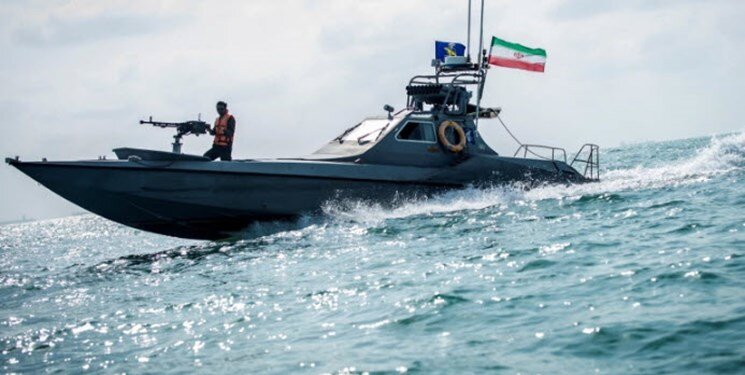U.S. hit-and-run move thwarted

TEHRAN – In a major act of defiance, Iran announced Wednesday that it had foiled a U.S. attempt to confiscate Iranian oil in the Sea of Oman, setting the stage for further Iranian defensive acts to protect its oil exports in the face of growing threats from the U.S. to restrict Iran’s oil trade.
The naval forces of Iran’s Islamic Revolution Guards Corps (IRGC) have launched a daring operation to protect Iran’s oil export after American forces confiscated a giant Iranian oil tanker in the Sea of Oman and transshipped its oil shipment to another oil tanker, the Iranian state media said on Wednesday.
According to Iran’s state-run TV, the IRGC navy forces conducted a heliborne operation to return the seized oil cargo to Iran. the IRGC troops landed onboard the oil tanker carrying the seized oil and led it into Iran’s territorial waters.
In the meantime, U.S. forces sent several helicopters and destroyers in a bid to retake the oil tanker but the IRGC navy prevented them from doing so, according to Iranian media.
The U.S. made another effort to prevent Iran from taking the oil tanker but failed.
The oil tanker is now in Iran’s territorial waters. Iranian media offered no further detail as to when the encounter happened and which country the seized oil tanker belongs to.
The IRGC media office confirmed the encounter in a statement on Wednesday and said the oil tanker has docked at a Bandar Abbas port. The statement described the U.S. move as “robbery.”
As of this writing, the United States has remained silent on Iran’s announcement. Of course, a U.S. military official to Al-Jazeera that “the allegations of the Revolutionary Guard Corps about the Iranian oil tanker are not true.”
But the IRGC said it had “clear, telling, and undeniable images of the encounter” that would be shared with mass media.
The episode marked the first time Iran and the U.S. engaged in a tense encounter since Joe Biden took office nearly a year ago. It also came against a backdrop of heightened tensions between Iran and the West over when to resume the stalled Vienna nuclear talks on how to revive a 2015 nuclear deal, formally known as the Joint Comprehensive Plan of Action (JCPOA).
On October 27, Iran said the Vienna talks will begin before the end of November. It also said on Monday the exact date for resuming the talks will be announced this week.
While Iran’s return to Vienna remains under consideration, Washington and allies in Europe and the region ramped up their pressures on Iran both diplomatically and now economically.
On the other hand, Iran called on the U.S. to provide “objective guarantees” that Washington won’t renege on its commitments under a revived nuclear deal with Iran again.
Iranian Foreign Ministry spokesman Saeed Khatibzadeh described U.S. administrations as “rogue regimes” that are not reliable to work with.
“Onus is on @POTUS to convince int'l community—incl all JCPOA participants—that his signature means something. For that, ‘objective guarantees’ needed. No one would accept anything less,” Khatibzadeh said on Twitter.
But it seems that the U.S. has refrained from offering such guarantees. The secretary of Iran’s Supreme National Security Council, Ali Shamkhani, likened the current state of play between Iran and the U.S. to the Iran-Iraq war in the 1980s.
“The attacks from Saddam were in progress / the sanctions continue. Part of Iran was under the enemy’s occupation / the Iranian nation’s economy has been held hostage. The combatants were defending (Iran) in the front line / The scientists proceed with the legal nuclear activities,” he said on Twitter.
Just as Saddam Hussein when he offered to hold negotiations with Iran, Shamkhani continued, President Biden too, is not repentant for his policy on Iran. And he is not willing to offer guarantees, the top Iranian security official added.
“In case the current situation does not change, the result of negotiations would be clear in advance,” he warned.
Shamkhani’s remarks, along with reports of a hike in Iran’s oil exports in recent months that seem to be the main reason behind the latest encounter, were the latest sign that the resumption of negotiations between Iran and the West won’t affect Iran’s active resistance policy adopted after former U.S. President Donald Trump launched his “maximum pressure” campaign against Tehran.
